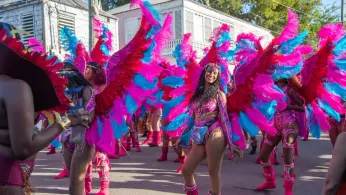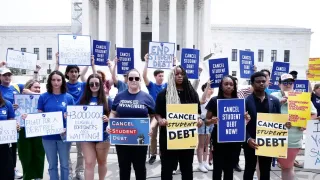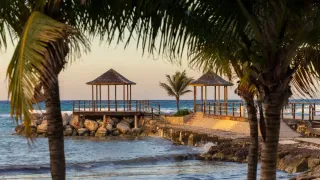
5 hours ago
Paradise Found: US Virgin Islands Makes History with Gender Marker Victory for Trans and Intersex Residents
READ TIME: 4 MIN.
If you’ve ever dreamed of running away to a tropical paradise where you’re seen for who you truly are, the US Virgin Islands just got a whole lot closer to that dream. In an era when many US states are rolling back rights, this Caribbean territory has just tossed a glitter bomb into the national debate by allowing transgender and intersex people to change the gender marker on their official documents—a first for any American territory .
The milestone comes courtesy of "Executive Order No. 543-2025", signed on October 15 by Governor Albert Bryan Jr. After years of legislative gridlock, Bryan wielded executive authority to create a clear, compassionate pathway for Virgin Islanders to live as their authentic selves on paper as well as in person. During the signing ceremony, Governor Bryan struck a chord with the local queer community, declaring, “This Executive Order provides a fair and compassionate process where none existed before. It ensures that our government recognises and respects the lived realities of all our residents” .
The new policy means any adult can apply in writing to update their birth certificate or government ID, while parents or guardians can do the same for minors. All it takes is a healthcare provider’s statement confirming an intersex condition, or a court order for gender reassignment .
What’s more, the wording on official documents now swaps out the word “sex” for “gender”—a move that signals the territory’s commitment to respecting how people present and experience their own identities .
For many in the LGBTQ+ community, an accurate government ID is about more than paperwork—it’s about safety, dignity, and simply being able to move through the world without having to explain yourself. As Governor Bryan put it, “Virgin Islanders have reached out to our administration seeking a way to have their documents reflect who they truly are” .
Access to correct identification can mean the difference between being accepted at a job interview, renting an apartment, or traveling without fear of harassment or violence. It’s proof that the government has your back, that your identity is valid in the eyes of the law .
The timing of this change is nothing short of extraordinary. Over the past two years, more than 500 anti-LGBTQ+ bills have been introduced in the US, with many targeting healthcare, education, and the basic civil rights of transgender people .
While states like Texas, Florida, Tennessee, Kansas, and Oklahoma have been making it harder for trans people to update their IDs, the Virgin Islands are waving a rainbow flag in the opposite direction. The territory already outshines much of the US mainland by banning discrimination based on sexual orientation and gender identity, and by not imposing restrictions on gender-affirming healthcare, sports participation, or bathroom access .
Let’s be real: changing the policy is only half the battle. The language shift from “sex” to “gender” on official paperwork is a subtle but radical change, moving the conversation from what’s assigned at birth to what’s lived every day. As Bryan explained, “Sex and gender are two different things. In the Virgin Islands, there’s only sex—male and female. Gender is what you present as or what you feel” .
It’s an important distinction, especially as the rest of the country debates the basics of trans existence. The Virgin Islands’ approach is grounded in the idea that the government’s job is to affirm, not police, people’s identities.
This win didn’t come out of nowhere. It’s the result of years of community organizing and the tireless efforts of local LGBTQ+ advocates who refused to let their stories be silenced. The executive order explicitly honors these efforts, acknowledging that visibility and recognition are the results of collective action .
The new policy also positions the Virgin Islands as a leader among US jurisdictions, joining over two dozen states, Puerto Rico, and Washington, D.C. in providing inclusive documentation—but as the first territory to do so, they’re setting a standard that others can only hope to catch up to .
To access these rights, residents can contact the Department of Health’s Office of Vital Statistics—a move that opens the door for many who have waited years, if not decades, to see their true selves reflected on their IDs .
There are still limitations: nonbinary people, for example, are not yet recognized, and the process requires medical documentation for intersex individuals or court approval for others—a reminder that even historic progress is rarely perfect . Still, this shift is a powerful step toward making the islands a true haven for LGBTQ+ people.
In the words of one local advocate, the Virgin Islands’ new direction is about “the simple right to be seen as you are.” That message, sent from a small group of islands to the rest of the world, rings out loud and clear: dignity and self-determination are not just buzzwords, but the heart of true equality .
As the waves lap the shores of St. Thomas, St. Croix, and St. John, there’s a new tide rolling in—one of visibility, hope, and the promise that everyone, no matter their gender journey, deserves to live and love out loud.






